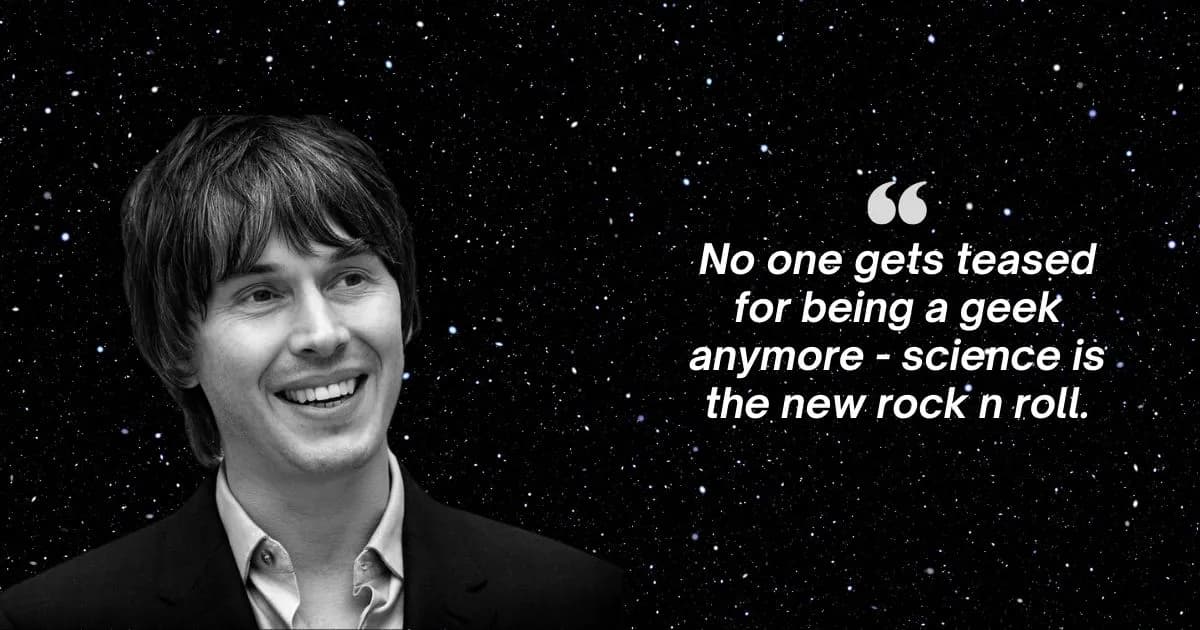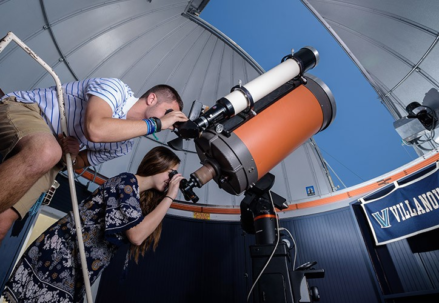Devotees of scientific programming are likely familiar with Prof. Brian Cox, a distinguished English physicist and ex-musician, known for his significant contributions to BBC’s science shows. His extensive work in physics education and public communication is revered, particularly his role at the University of Manchester.
Prof. Cox’s Background and Contributions
Since his youth, Prof. Cox has been enamored with the cosmos, aspiring to venture into space. His current involvement at CERN’s Large Hadron Collider, especially with the ATLAS experiment, has been noteworthy. His dedication to rekindling the younger generation’s enthusiasm for physics has earned him accolades, including the Royal Society’s 2012 Faraday Prize.
Notable Quotes by Prof. Brian Cox
Prof. Cox’s words often reflect his deep understanding of science:
- “Exploration is the essence of science, and uncovering the universe’s mysteries requires active investigation.”;
- “Questioning the validity of climate change science due to economic disagreements is unwise.”;
- “Science’s distinctiveness lies in its empirical nature, negating the necessity of faith.”;
- “Particle physics aims to decipher the fundamental composition and cohesion of the universe.”;
- “A layperson’s misunderstanding of science can lead to misinterpretations of critical issues like global warming.”;
- “Curiosity, not the pursuit of practical applications, drives exploration.”;
- “Science represents our collective knowledge, but thrives on the cusp of the known and unknown.”;
- “In science, truths are transient, subject to revision as new evidence emerges.”;
- “Light connects us to the universe, offering a glimpse into the distant past and the vastness beyond our solar system.”;
- “Every carbon atom in life forms originates from the core of a dying star.”
Learn Astrophysics with Our Free Series
Embark on a journey through astrophysics with our comprehensive 30-article series. Covering everything from basic astronomical concepts to advanced theories, this series is a treasure trove for enthusiasts. Available for free on our website.
The Evolution of Physics Education
The approach to teaching physics has undergone significant changes in recent years, adapting to new technological advancements and shifting student interests. This section explores the evolution of physics education, highlighting how it has become more interactive, accessible, and aligned with current scientific developments. The transformation is marked by the integration of digital resources, an emphasis on practical applications, and a stronger connection between theoretical concepts and real-world phenomena. This shift has been instrumental in maintaining student engagement and fostering a deeper understanding of the subject.
The Impact of Technology on Modern Astronomy
Technology has revolutionized astronomy, transforming it from a primarily observational science to one that is heavily reliant on advanced computational methods. This section delves into the profound impact of technology on modern astronomy, examining how innovations like the Hubble Space Telescope and ground-based observatories equipped with adaptive optics have expanded our understanding of the universe. Additionally, the role of data analytics and simulations in hypothesizing and validating astronomical theories is discussed, showcasing the synergy between technology and astronomical research.
Comparative Table: Traditional vs. Modern Physics Education
| Aspect | Traditional Physics Education | Modern Physics Education |
|---|---|---|
| Teaching Methods | Lecture-based, textbook-oriented | Interactive, multimedia-driven |
| Student Engagement | Passive learning | Active, hands-on learning |
| Resource Accessibility | Limited to physical books and labs | Wide access to online resources and virtual labs |
| Emphasis | Theoretical concepts | Practical applications and real-world relevance |
| Technology Integration | Minimal | Extensive, including simulations and virtual reality |
| Collaboration Opportunities | Limited to classroom | Global, via online platforms and forums |
| Adaptability to New Discoveries | Slower, due to textbook revisions | Rapid, with digital resources easily updated |
| Student Feedback | Primarily through exams and quizzes | Diverse, including interactive assessments and online quizzes |
Video Guide
To answer all your questions, we have prepared a video for you. Enjoy watching it!
Conclusion
Prof. Brian Cox’s insights provide a unique window into physics, blending his academic prowess with his ability to communicate complex ideas to the public. His quotes testify to his profound understanding of and passion for the universe.





